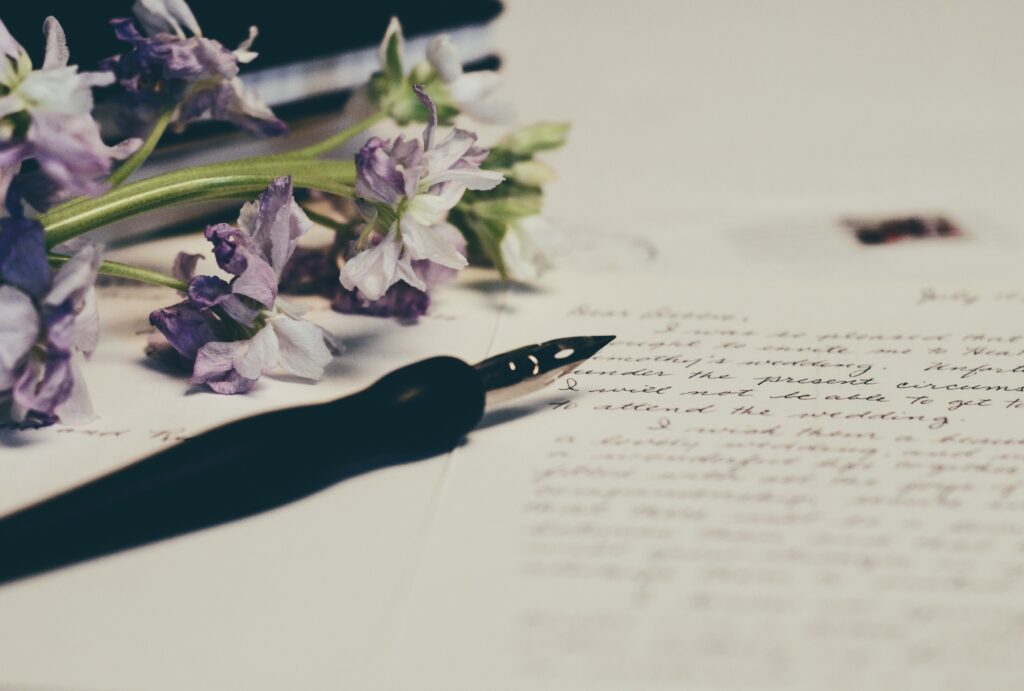My Best Writing Advice

It’s not uncommon for me to be asked for writing advice via Instagram DMs or even through email. I’m flattered that people think I am a source for writing advice when I feel like a newborn author. I’m always happy to share my experience, though, and thought I’d document some of my best writing advice pulled from both experience and from what others have shared with me that I’ve found valuable.
The first draft doesn’t matter. Just write it.
I find that folks get wrapped around the wheel of plotting and outlining their first draft instead of just writing it. If you’re a plotter, take the time to do so, but then simply write the draft. Don’t worry about perfection. Don’t obsess over flow. Don’t worry about the minute details. Your first draft is about getting words down. You will have plenty of time to come back and revise. In fact, you will revise many times over. Get the words down however they come. Go from there.
Read as much as you can.
I’m a better writer because I read in the genre(s) I write in. I like to read, for starters, but I also find it useful for knowing what other authors in my genre are writing. What are their storylines? Who are their main characters? What tropes are they using? I take in their phrasing and writing styles as well, look at their covers, all those things. Not only does it help me hone my craft, it also lets me get a feel for the business side of writing. It’s helpful to know what is selling in my genre, what people are buying, and how they are being marketed. I learn so much from reading. Imagine that.
Revise in multiple formats.
I write in Word. I then revise in Word several times over. I catch a lot of spelling and grammatical errors and edit flow and structure. Eventually, though, it all runs together. It’s just words on paper and I’m not seeing anything new. After at least three full read-throughs in Word, I print out the entire manuscript and read through it with a red pen. I’m always blown away by how many more errors I find and how differently the story hits in that format. I’ve made sweeping changes to storylines after reading the physical document and experiencing the story in a different manner. The next revision is focused on editing the Word document based on what I found in the physical document, then I do one or two more revisions in Word, often changing the font to sort of “reset” my comprehension. I almost always catch a few more minor things that way. Depending on how my deadline is looking, I like to try to send a PDF to my Kindle to read as well. Revising in multiple formats with different fonts tricks the brain and lets you see your work with fresh eyes. I highly recommend it.
Write what you know – and what you like.
If you don’t believe what you write, your reader will know it. Don’t chase what’s popular. Don’t force yourself to write something that doesn’t resonate. If you know fantasy and intricate worlds and magic systems, write that. If you like erotica and feel confident in your ability to write it well, do it. If you don’t enjoy thrillers and have never written a thriller, don’t force yourself to write one simply because they sell well. Write in the genres you know and like. You’ll be a better writer and likely have more success if you do so.
Write something every day.
Write something every day, or at least as often as possible. It’s cliche writing advice, but it’s so true. The more you do something, the better you are at it. Try to write every day. For me, I might get a few thousand words down one day, then only a hundred or so the next, but I try to write something every day. A trick I use to do this? I stop writing in the middle of a thought or even a sentence, especially if it’s a scene I’m really wrapped up in and excited about. It makes me look forward to opening my laptop again the next day.
Just write the damn book.
I know, it’s trite writing advice, but it’s true. Write the damn book. You can buy all the cute notebooks and a spectrum of pens and highlighters. You can plot and plan and outline yourself into circles. You can talk about writing your book, daydream about writing your book, but if you have to actually write the book. The only bad draft is the one you don’t write. So open up that blank Word document and start typing.
There is no right way.
The internet is full of people telling you their way is the only way to write a book or get it published. I’m here to tell you this is absolutely not the case. There are countless ways to write a manuscript and get it published. There is no one right way, no matter what the unsolicited advice in your Instagram DMs or in that Slack writers group might tell you (speaking from personal experience, here). You have to lean in and figure out your way of doing things. What works for you might be to follow the same path as that YouTube guru you follow. Or it might be to try what feels right to you and take it from there, see what happens.
That’s my best writing advice. Take what resonates and leave the rest.
And seriously – start writing that draft!




